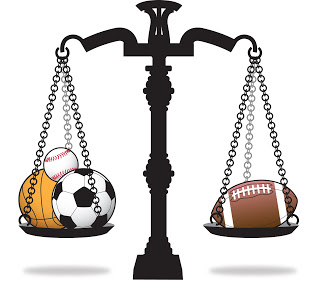With limited options and uncompetitive odds, New Yorkers may find "bettor places" to go
Give credit to New York Governor Andrew Cuomo. He certainly knows how to immerse himself in headlines. While currently involved in a sexual harassment scandal and still fighting off critics demanding his exit over nursing home victims amid COVID-19, he has found his way into another controversial subject.
Although not quite as urgent, many in the sports betting world cannot understand his recent ruling and judgements involving legislating the state of New York to be the next to bring on mobile wagering.
Most lost and confused may be sports bettors in New York themselves, who eventually could be paying the steepest price for the governor's perplexing decisions. As early as this September, they will provide the governor their important response with their betting dollar handle report.
Big Change of Heart
Initially, Cuomo held out against dissenting opinions for several years against any form of online gambling in the state. Approximately six months ago he reversed that stance, saying he wanted online sports BUT for the New York State Lottery to be in charge of operations while lawmakers seriously preferred multiple operators and a traditional open market akin to other U.S. states. In the beginning of 2021, the NY State Gaming Commission released a study to consider the prospect of online wagering through the current base of four New York casinos that are conducting sports betting and casino wagering. The detailed 358-page study concluded that sports wagering could produce $816 million to $1.14 billion in gross gaming revenue (GGR). Also, statewide tribal sports betting could produce anywhere from $72 to $99 million per year in revenue.
In the beginning of 2021, the NY State Gaming Commission released a study to consider the prospect of online wagering through the current base of four New York casinos that are conducting sports betting and casino wagering. The detailed 358-page study concluded that sports wagering could produce $816 million to $1.14 billion in gross gaming revenue (GGR). Also, statewide tribal sports betting could produce anywhere from $72 to $99 million per year in revenue.
Pushed by a growing $59 billion dollar revenue shortage in the fiscal New York budget, Cuomo has been forced toward expanding sports betting as one of the key rescue measures to help the state recover. Even if the numbers forecasted by that report are not accurate, the governor knew they were losing a great deal of potential money every week they did not act.
The New York Laws
The following is a brief synopsis of the quite confusing proposed sports wagering laws to be enacted this year for New York, dictated by Governor Cuomo:
Winning platform provider applicant(s) will be required to enter into a revenue sharing agreement with the State, pursuant to which the State is expected to seek at least fifty percent (50%) of the platform provider's gross gaming revenue, on top of a statutory $25 million upfront fee for a 10-year license.
Mobile servers must be located in New York commercial casinos in order to satisfy constitutional concerns.
There will be a minimum of four (4) mobile sports betting skins, or brands, available for players to access in the marketplace. There is no corresponding maximum number of sports betting skins.
The Translation In deciphering these highly controversial statues, there are several unusual rules that will seem to work against both the new sportsbook operators AND the players as online sports betting begins. Like other states including Arizona and Wyoming, beginning online wagering in September for football season is targeted, although early 2022 looks more likely for New York.
In deciphering these highly controversial statues, there are several unusual rules that will seem to work against both the new sportsbook operators AND the players as online sports betting begins. Like other states including Arizona and Wyoming, beginning online wagering in September for football season is targeted, although early 2022 looks more likely for New York.
The revenue sharing proposal taking 50% of GGR along with a $25 million upfront fee for a 10-year license is quite excessive. In comparison to other comparable revenue models for sports wagering, including New Jersey and Pennsylvania, it appears debilitating for operators.
Cuomo boldly commented on these procedures by outright saying:
"We want to do sports betting the way the state runs the lottery, where the state gets the revenues. Many states have done sports betting, but they basically allow casinos to run their own gambling operations. That makes a lot of money for casinos, but it makes minimal money for the state.
"And I'm not here to make casinos a lot of money. I'm here to raise funds for the state. So, we have a different model for sports betting."
Doing the Math
Unfortunately, it seems that while prioritizing desperate funding for New York state, Gov. Cuomo has not been able to be convinced of the mechanics of how sports bettors and sports betting works.
Among the new rules set are limitations of accepting licenses of a minimum of only four sportsbook operators. From that narrow mix the opportunity of inviting an undisclosed number of "skins". That interpretation indicates a limited, less competitive number of sportsbooks for New York bettors to choose upon.
It is assumed that only the largest, well-financed corporate giant operators, including DraftKings, FanDuel, BetMGM and potentially a select few others, will be first rewarded with those selected licenses.
Combining steep revenue sharing with the state and high license fees along with a minimum number of competitive choices indicates a negative result for the most important business aspect: the online sports bettor - the customer.
A Bettor Place to Go
Most forgotten in the projected discussion by Gov. Cuomo to bring online sports wagering to New York is focusing on how to best serve the customer. As in any business, what works, what has not worked and how to do it better, etc.
For over two decades New York sports bettors have enjoyed the option of offshore wagering, prioritizing their attention upon the top online sportsbooks to rely upon. That can continue with opportunity to seek better competitive odds at many more sources to potentially win. From Bovada in Canada to WagerWeb in Costa Rica and BetOnline in Panama, the opportunity to gain greater profit will continue.
Ironically, the largest potential fallout may come at the expense from the group online wagering in New York was targeted to obtain, the New Jersey sports bettor.
New Jersey currently holds the number one position in state ranking for sports betting, taking in a handle of almost one billion dollars last December. The bordering New York City market has seethed in jealousy losing the opportunity as many bettors have crossed local bridges and tunnels to be geolocated in Jersey, waiting for the state to legalize online wagering. But, with a future prospect of potential limited wagering options and uncompetitive betting lines, many gamblers will retain the comfort of their long-held offshore wagering accounts and 'locals', keeping them in place.
As all rules and policies are finalized, New York will have at least five to eight months before online sports betting officially begins. Hopefully someone in Albany figures out the most important details before it's too late.
Glenn Greene covers the games from a betting angle every week exclusively at OSGA.com. For weekly betting insights, including previews and picks from Glenn, click here.








































